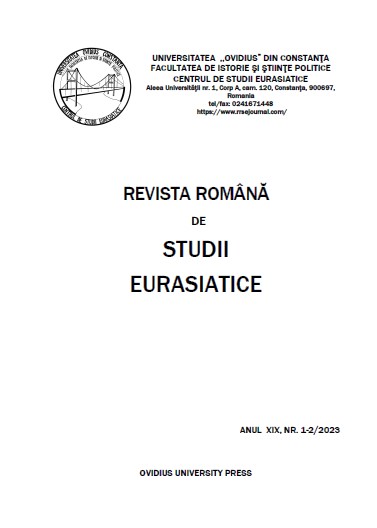DIPLOMATIC POSITION OF CZECHOSLOVAKIA IN THE ARAB WORLD IN THE LATE 1940s
DIPLOMATIC POSITION OF CZECHOSLOVAKIA IN THE ARAB WORLD IN THE LATE 1940s
Author(s): Eva TaterováSubject(s): Diplomatic history, Political history, International relations/trade, Political behavior, WW II and following years (1940 - 1949), Post-War period (1950 - 1989), Cold-War History, Peace and Conflict Studies
Published by: Ovidius University Press
Keywords: Cold War; Czechoslovakia; diplomacy; Egypt; Lebanon; Syria; Arab-Israeli Conflict;
Summary/Abstract: This article examines Czechoslovakia's diplomatic relations with Egypt, Lebanon, Syria, and Palestine in the late 1940s. Initially, in the aftermath of Second World War, Czechoslovakia enjoyed a seemingly favorable position in these countries, given its history of relatively successful pre-war mutual cooperations. However, the situation soon changed as two significant factors came into play. Firstly, Czechoslovakia's gradual alignment with the Soviet Union raised suspicions among Arab nations about potential attempts to export communism. Secondly, Czechoslovakia gained a negative reputation as an active supporter of the State of Israel. These developments led to the isolation of Czechoslovak diplomatic missions in the Arab countries during the late 1940s. Nevertheless, diplomatic relations were not severed, ultimately evolving into a surprising friendship due to the significant political changes both in Czechoslovakia and these Arab countries in the subsequent years. This research is based on relatively underexplored Czech archival documents related to foreign policy during the early years of the Cold War.
Journal: Revista Română de Studii Eurasiatice
- Issue Year: 19/2023
- Issue No: 1-2
- Page Range: 267-284
- Page Count: 18
- Language: English

